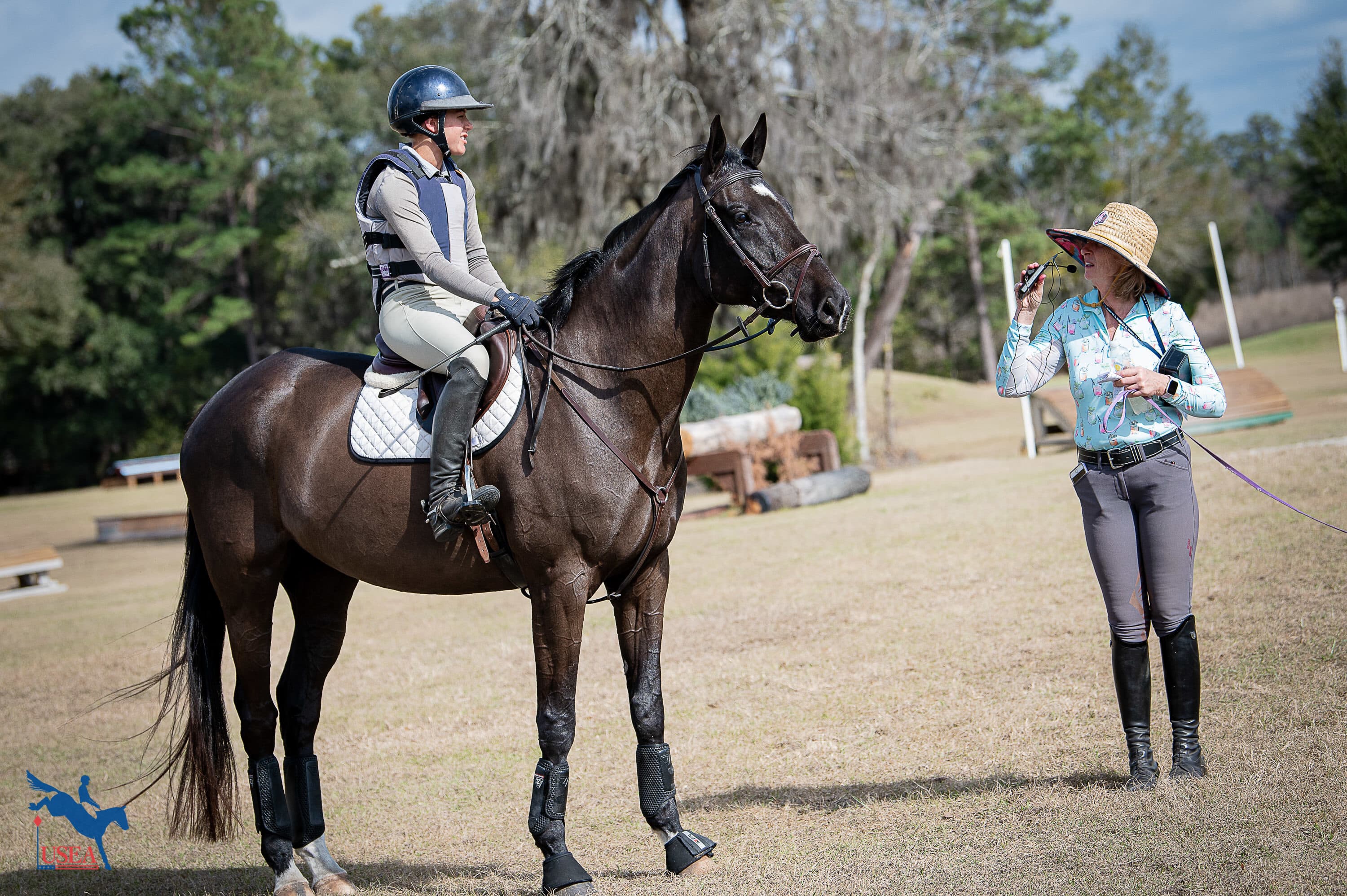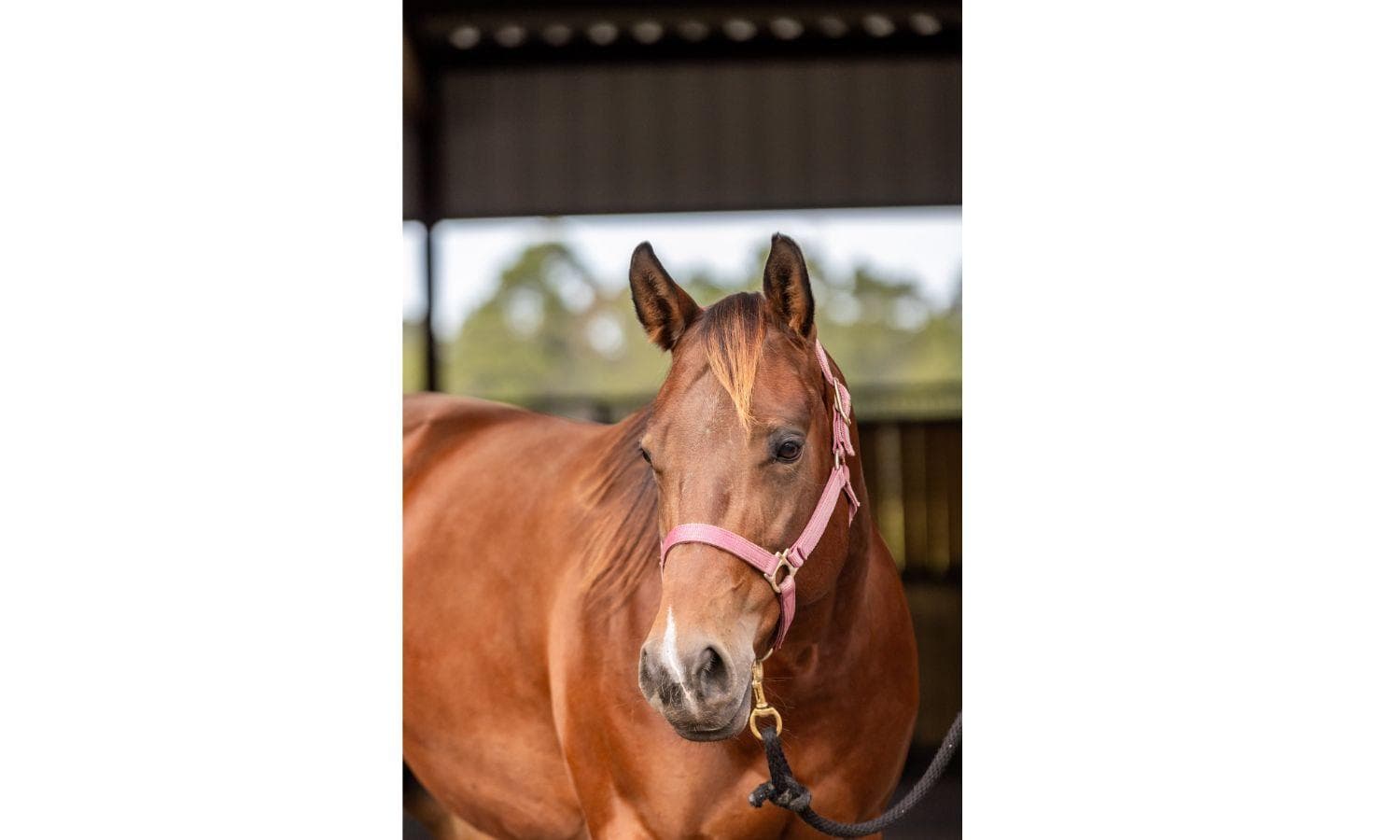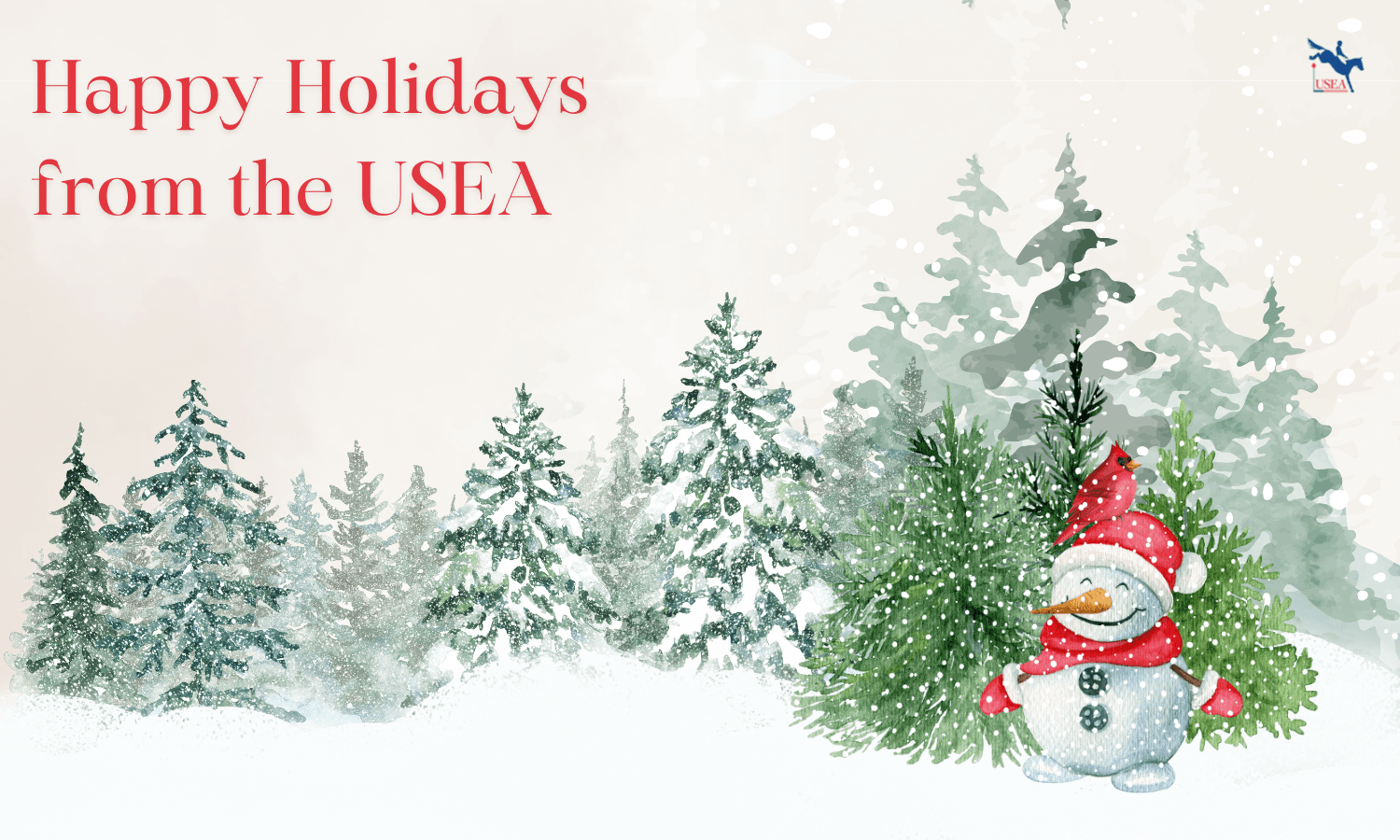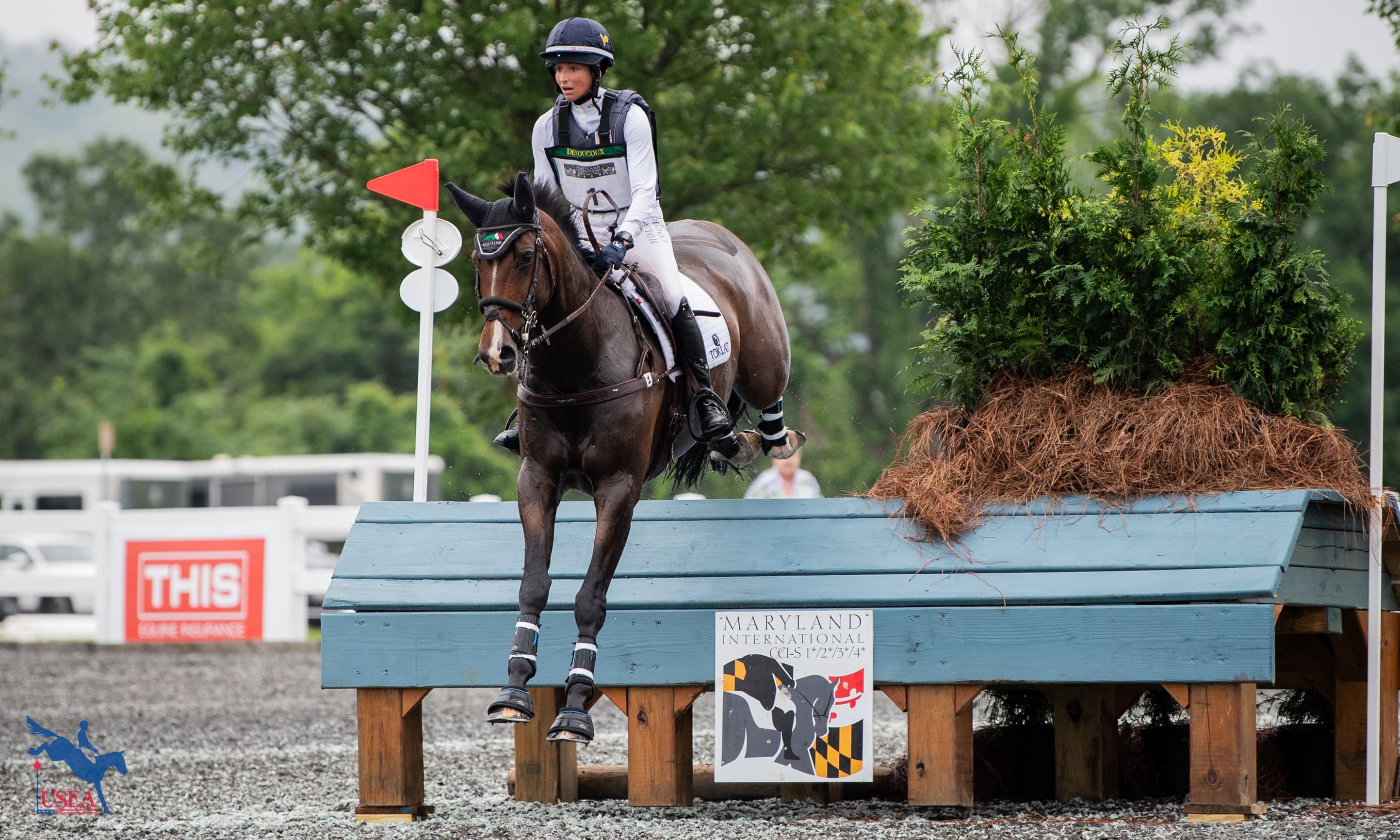Selecting a Coach That’s Right for You

A coach plays a crucial role in the education, safety, and success in competition of event horses and riders. The role of coaches, the techniques they use, and the resources available to them continue to evolve and grow. Jennifer Howlett Rousseau, a Level IV USEA Eventing Coaches Program (ECP) Certified Coach who runs L’Esprit Equestrian, LLC. in Barrington, Illinois, and who serves on the United States Eventing Association (USEA) Board of Governors, shared her thoughts about the importance of proper coaching and the responsibilities that trainers and riders have for creating a successful relationship.
USEA: Why is it important to have a coach in eventing?
Jennifer Howlett Rousseau: First of all, there’s a lot of good instruction out there available, and why wouldn’t you use all the good information you can get to be more comfortable, safer, happier, and have more fun? The more you know, the more fun and success you’re going to have and the safer you’re going to be. It’s the same for any sport. I certainly wouldn’t take up snowboarding without getting some lessons.
Although this will vary by individual, what is your recommendation for the balance that a rider should have between riding with a coach and on their own?
I don’t think there’s any recipe exactly. It’s a little bit level-dependent. I think at the lower levels, you need more lessons. I try and encourage one to two, if possible, three lessons a week. Maybe three lessons a week is for shorter periods of time, like pre-competition weeks. As you climb up the levels and you get a little bit more proficient, you can be also a little bit more self-sufficient.
Every rider, by riding on their own, needs to go through what I call the discovery process, which is where they really discover in their own time what they’re doing and how they’re doing it without being walked through it.
I always tell my students, too, that they should see if they can replicate, in varied venues, what we’re trying to do in a standard, safe setting like an arena. I encourage all my riders to trail ride, hack, and go out to school in the cross-country field and see if they can replicate their tools and do what they need to do in different locations. Hack out to the back forty and then see if you can ride your 20-meter circles and leg yield from the edge of the field inward in a completely unstructured environment.
What steps do you recommend riders take when searching for a coach that's a right match for them?
It’s important for a rider to really think about what they want to be able to do. Then, I think it’s super important that they observe the teaching of the professional not only at the horse show, but possibly wherever their normal teaching venue is. And, if possible, even to take a sample lesson.
If I offer a sample lesson, I have the prospective student meet me and talk to me about what they’re going to do, what their goals are, what their dreams are, what their ambitions are. I may tell them right then, ‘I’m not your girl,’ but normally, most people I can accommodate. I have a pretty wide-ranging practice. So, I’d say, ‘OK, great. Come and watch. Here’s a day when I’m going to be teaching people at your level. Come and see if my style fits with what you’re thinking about.' Then if we go through that process and they still want to come back, then we do a sample lesson. I always say it’s no pressure. You decide what’s right for you.
We have different levels of coaching for a reason, and somebody that regularly teaches Starter and Beginner Novice people may be a much better coach for Starter and Beginner Novice people than an Advanced rider who doesn’t do that on a regular basis. So, I think it’s really important for people to do their homework, do the research, and think about what they want in terms of the program overall.
Incorporate all those thoughts into your choice and, of course, choose ECP Certified if you can. And, if you can’t, see if you can talk whoever you sign up with to get certified.
How does going through the ECP certification process help trainers?
I can tell you that it completely changed my game. It upped my game about 100 percent going through that process. I originally decided to be certified because I felt like it was the right thing to do for the sport. My goal was that becoming certified was a way I could tangibly support the premise that event instructors are professionals.
Then, when I got into the program, there was a huge amount of personal growth: just the emphasis on all the factors that play into safety every day in our teaching; the workshops that you do with fellow instructors on the same path as you; and the mentorships and networking that resulted from the program was enormously valuable to me.
What is constructive feedback coaches would like to receive from their students?
I think that having an open dialogue is super important, and that is almost the trainer’s responsibility to ensure their rider feels comfortable telling them what they are feeling and thinking. The first aspect of this dialogue is the playback, where the rider can play back to the instructor what they are hearing and what they learned or what they felt.
You create an environment where students are really encouraged to ask questions and even express their reservations. They should be comfortable asking for explanation and details about why they’re doing something, and most important, they should feel empowered to speak up if they are not comfortable, if they’re feeling nervous, if they’re anxious, if what you’ve asked them to do makes them feel unsafe. It makes me a better instructor when they tell me, ‘Mrs. Rousseau, I didn’t understand that at all.’ I have to go back to the drawing board and figure out how to get them to understand it.
For junior riders, what recommendations do you have for communication between coaches and parents?
I think it’s really important to openly discuss. If I have a parent present at the end of the lesson, I’ll say to that parent after I’ve talked to Johnny or Susie and they’ve given me their feedback, 'Here’s what we’re working on, here’s why we’re working on it, here’s the goal of that work, and here are some expectations that we might have.'
I think the dialogue and always talking about goals and expectations is key. It’s important for the child or junior athlete to feel like everybody’s on the same page, that everybody in their orbit is working towards the same goals.
How will the coaching a trainer provides differ in a lesson versus at a show?
We don’t teach a lesson at a competition. At a competition, we’re just reinforcing what the rider already knows and then applying it to the questions that are posed by the competition test. The lessons at home are where we do the most learning of how to do things, how to do the movements of the dressage test, how to do the patterns of the show jumping, and how to do the various cross-country elements.
When you get to a competition, you’re taking the lessons you already know and applying them to the test, and that includes learning how to operate in the warmup, learning the rules and the regulations of the horse show, and understanding how to apply the rules and conditions of the competition level and your lessons from home to your competition riding.
This is imperative. When you have done your homework at home, then when you get to the horse show, you only are focused on executing the test and not trying to learn something you haven’t prepared for at home.
About the USEA Eventing Coaches Program (ECP)
Coaches are essential to the training of riders and horses for safe and educated participation in the sport of eventing. The USEA Eventing Coaches Program (ECP), formerly known as the Instructors’ Certification Program (ICP), was initiated in 2002 to educate all levels of eventing coaches with crucial training principles upon which they can continue to build throughout their teaching careers. ECP offers educational workshops and assessments by which both regular coaches, Level I through Level V, Young Event Horse (YEH) coaches, and Young Event Horse professional horse trainers can become ECP certified. Additional information about ECP’s goals, benefits, workshops, and assessments as well as names and contact information for current ECP certified coaches, YEH coaches, and YEH professional horse trainers are available on the USEA website. Click here to learn more about the USEA Eventing Coaches Program.














